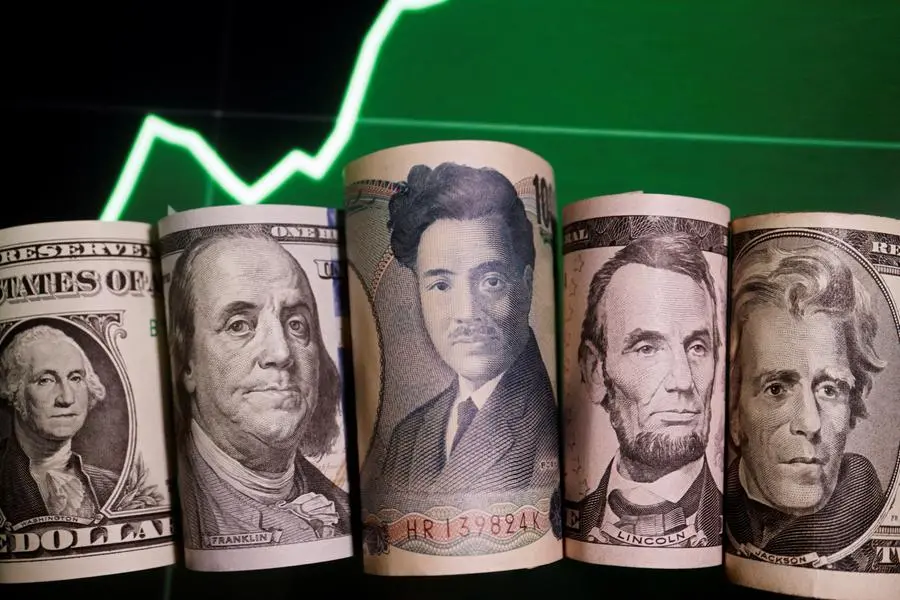PHOTO
Asian currencies began the week under slight pressure due to investors concerns about the outlook for the global economy ahead of key data due to be released by the United States and China this week.
China's yuan, the Singaporean dollar and South Korea's won declined between 0.1% and 0.2%, while the Indian rupee weakened to a fresh record low in the face of broad strength in the U.S. dollar.
The greenback remained perched near a 20-year peak, as the a hawkish U.S. Federal Reserve and possibility of a global recession has persuaded many investors to switch to the safety of U.S. bonds.
"This week's focus pivots back to inflation, particularly the U.S. CPI (consumer price index) and the inherent hawkish Fed policy implications," said Stephen Innes, Managing Partner at SPI Asset Management.
In Wednesday's U.S. consumer price report, headline inflation is expected to accelerate further to 8.8%.
Adding to worries in the region are flare-ups in COVID-19 cases in China.
Multiple cities are enforcing fresh curbs, ranging from business suspensions to lockdowns, to stifle new clusters. Shanghai, the country's economic hub, is bracing for another mass testing campaign after detecting the BA.5 Omicron sub-variant.
Poon Panichpibool, a markets strategist at Krung Thai Bank warned that re-introduction of strict lockdown measures in China could trigger selling pressure on Asia's emerging market assets.
Data from China due on Friday are likely to confirm the world's second-largest economy contracted sharply in the second quarter amid coronavirus lockdowns.
Shares in Shanghai tumbled as much as 1.6% to hit their lowest since June 23. Stocks in Taipei and Manila both fell over 0.5%.
The narrowing gap between U.S. interest rates and rates in Asian countries have weighed heavily on local currencies.
The Philippine peso and Thai baht have fallen 9.7% and 7.6% this year, respectively. The Philippines central bank's governor said it is prepared to raise its policy rates by 50 basis points at its meeting in August, and follow up with further policy actions to control inflation and counter currency depreciation Thailand's central bank on Friday said they will let the baht move in line with market forces but will manage any excessive volatility in the currency.
On Monday, the peso was down 0.2%, while the baht bucked the regional trend to strengthen 0.1%.
Meanwhile, the Sri Lankan rupee tumbled nearly 2% as President Gotabaya Rajapaksa informed Prime Minister Ranil Wickremesinghe that he will resign, after tens of thousands of protesters stormed the official residences of both men.
Stocks in Singapore did not trade on Monday, while stock and currency markets in Malaysia were closed.
(Reporting by Harish Sridharan in Bengaluru; Editing by Simon Cameron-Moore)





















